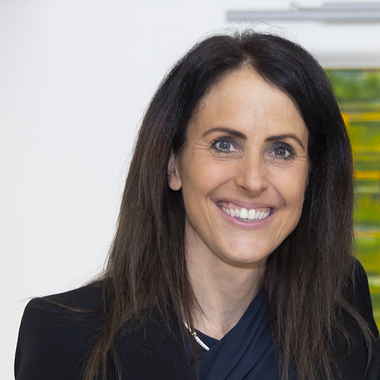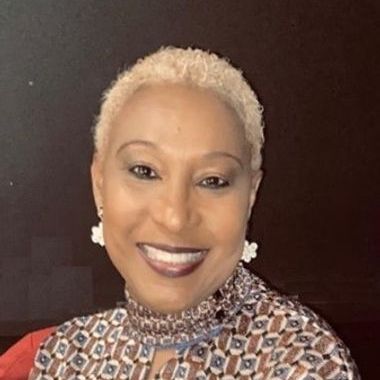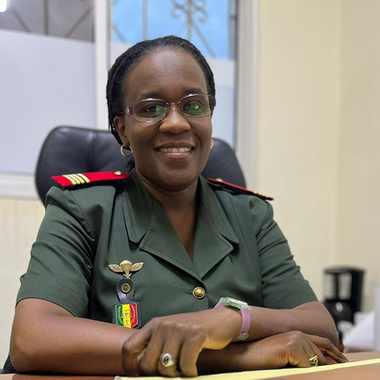
The webinar recording and presentations are now available and can be found on the resource page. The resources are available for registered attendees and ICPA members.
Date and Time
18th August 2025
- 9:00 AM EST (Eastern Standard Time)
- 2:00 PM London (BST)
- 1:00 PM Dakar, Senegal (GMT)
- 4:00 PM Nairobi, Kenya (EAT)
- 11:00 PM Sydney, Australia (AEST)
This webinar brings together global experts to critically examine the intersection of gender, health, and incarceration across diverse prison contexts. With a particular focus on vulnerable populations, this session will highlight current challenges, share evidence-based practices, and explore paths toward upholding dignity and health equity in carceral settings.
From international human rights standards to localised experiences in Senegal, Haiti, and Jamaica, participants will gain valuable insight into the complexities of gender-based health disparities in prisons and the imperative for inclusive, ethical, and gender-sensitive healthcare responses.
Moderator
Speakers
1. Care of pregnant and breastfeeding women in contact with the legal system: the need for global reform
The global female prison population has risen sharply since 2000, largely due to punitive responses to poverty and drug-related offences. There is no robust global data on the number of pregnant or breastfeeding women in prison, or women living with their children in carceral settings. These women and their children (or foetuses) face heightened risks to their health, safety, and dignity, particularly during the perinatal period. Drawing on international norms and country-specific examples of reform, the prioritisation of non-custodial alternatives to imprisonment for pregnant and breastfeeding women, particularly for non-violent offences, and the implementation of gender-responsive, trauma-informed care are warranted. Monitoring of prison standards and oversight by independent inspectorates and national preventive mechanisms are critical to ensure compliance with human rights standards. Legislative and policy reforms demonstrate a growing commitment to decarcerating and protecting the rights of incarcerated pregnant and breastfeeding women and their children.
2. Celebrating Women in Correctional Leadership: Driving Health Improvements in the Jamaican Prison Service
Correctional environments present unique challenges and opportunities for leadership, particularly in the Department of Public Health. This abstract outlines the roles and impacts of women leaders within the Jamaican Prison Service, emphasising their instrumental role in the management and implementation of health programs, and details transferable learning that could be applied in other work locations and countries. Under the leadership of Dr Donna-Michelle Royer-Powe, a comprehensive framework of care has been established to address healthcare needs within prisons. DDrDonna-Michelle Royer-Powe exemplifies the impact of female leadership in orchestrating complex health interventions across multiple facilities and demonstrates success in a male-dominated environment for more than two decades. Infectious diseases continue to attract stigma, and the DCS has established gender sensitive services designed by women for women. Dr Donna-Michelle Royer-Powe also champions innovative community-based strategies to extend care beyond prison walls. This includes employing community health workers to increase access to testing and treatment and ensure continuity of care for released prisoners. This approach not only addresses the immediate health needs of incarcerated individuals but also aids in their reintegration into society by connecting them with ongoing care. The success of these programs under female leadership highlights the critical role that women must play in leading change within challenging environments. It underscores the necessity of empowering women in leadership roles, particularly in sectors where they can significantly impact public health and welfare. By providing a platform for women to lead and innovate, DCS not only improves health outcomes for incarcerated populations but also sets a precedent for gender empowerment in correctional system leadership. This model serves as a beacon for global efforts to integrate women in leadership roles, demonstrating that when women lead, they bring unique perspectives and solutions that can transform institutions and enhance societal well-being.
3. Confinement and Crisis: The Hidden Health Burden in Haiti’s Prisons
Haiti’s overcrowded prisons are facing a severe health crisis, where thousands live in inhumane conditions with little or no access to medical care. Infectious diseases like tuberculosis, HIV, and scabies spread rapidly due to malnutrition, poor sanitation, and lack of basic treatment. These are not just health problems; they are human rights violations that endanger lives and pose serious public health risks beyond the prison walls. Humanitarian efforts led by Health Through Walls and AHF Haiti are providing critical care, treatment, and hope in these challenging environments. Real stories, field data, and firsthand experiences highlight both the suffering and the resilience inside the system. There is an urgent need for long-term support, policy reform, and investment in prison health to protect lives and restore dignity to one of Haiti’s most neglected populations.
4. Transgender/intersexuality rights and protection in Senegalese prisons: an overview from a medical doctor
Hermaphroditism or intersexuality refers to an individual who possesses both male and female reproductive organs. A transgender person is a person born as a particular sex but who identifies and feels as belonging to the opposite sex. These two concepts are often confused. In our context, our 15-year-old patient was born with both reproductive organs. However, the feminine character is predominant, with all the signs of female puberty. Our patient identifies completely with the male sex and does not like his feminine appearance. Is he an intersex person? The answer is yes, but what gender does he identify with? He identifies as male. During the searches upon admission to detention, human dignity was not respected, exposing a long-held secret of this inmate. Initially directed to a facility for male minors only, he questioned his placement there. In Senegal, intersex and/or transgender people find themselves in a situation of great legal and social vulnerability. The Senegalese penal and prison system is based on a binary concept, that is, heterosexual. Individuals with gender identity issues face societal misunderstanding and even rejection. This leads to violence that can be verbal, physical, psychological, or sexual. Medical care has been initiated with the consent of the parents for a sex change oriented toward the gender desired by our inmate. Psychological support and multidisciplinary care will be provided, culminating in a multi-stage masculinising genitoplasty. This type of situation, encountered relatively rarely in our Senegalese prison system, raises the issue of access to care for intersex individuals, as well as their place of detention and the legal framework to which they are entitled.
Registration
As an ICPA member, you can attend our webinars at no additional cost. New registrants will receive a complimentary annual Full ICPA Membership when registering at full price. You will receive a confirmation email upon registration. Shortly before the event, you will receive a Zoom link via email.
To find out more about our membership plans, please click here.










